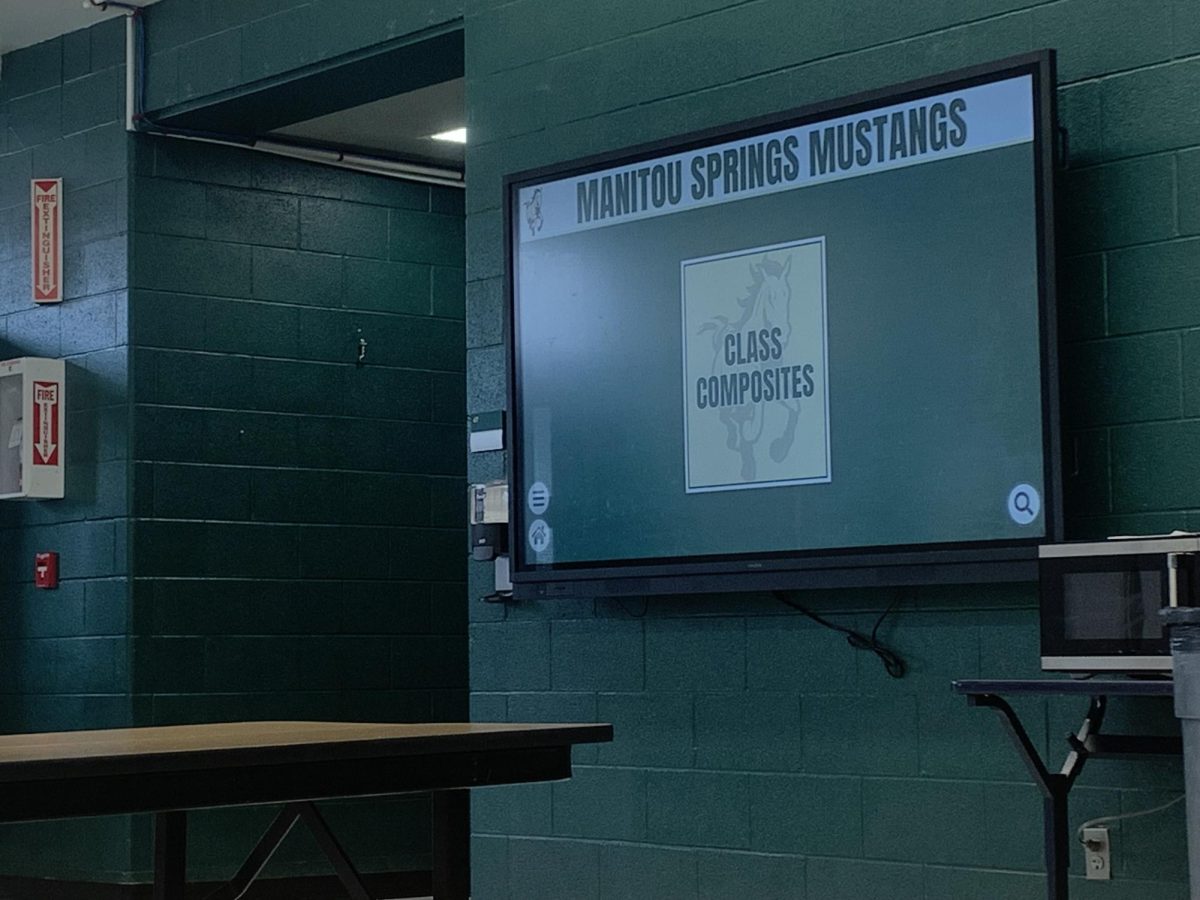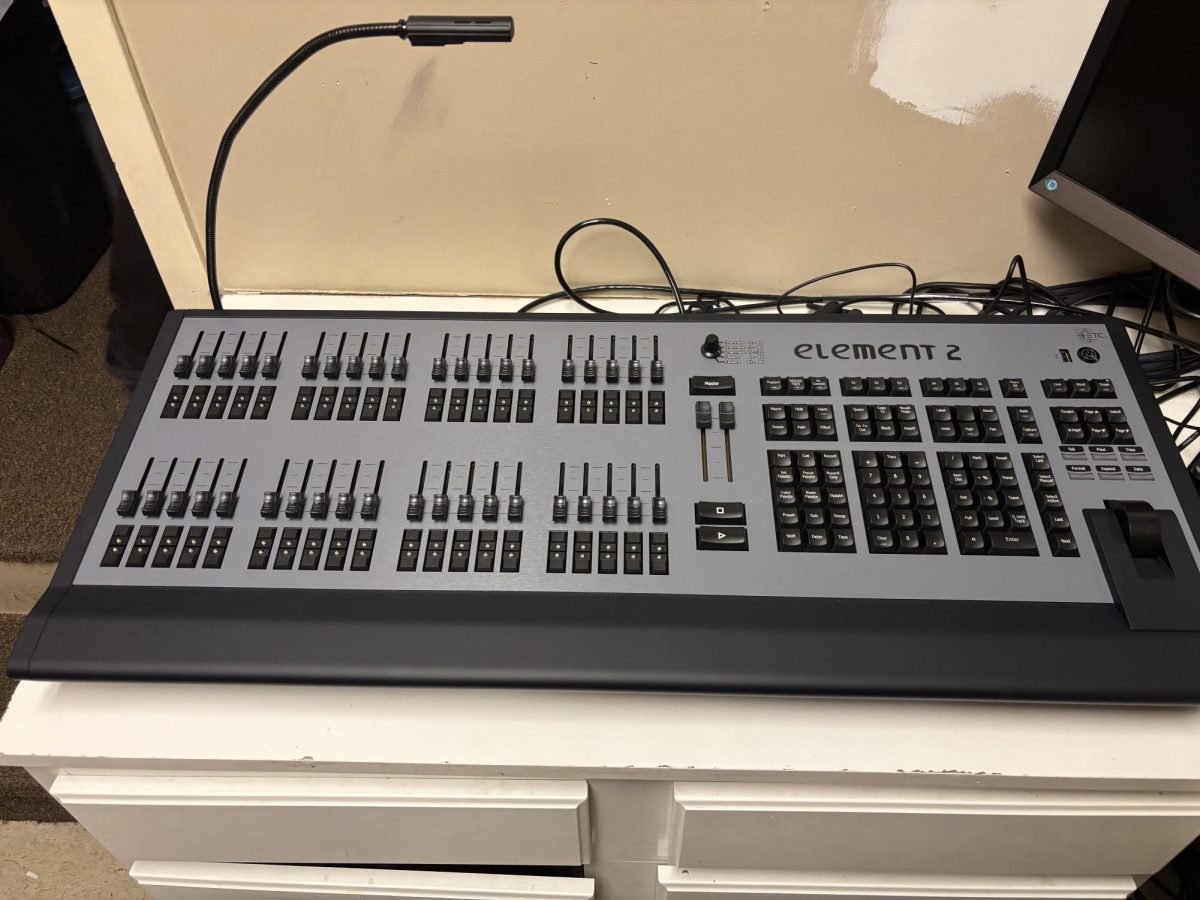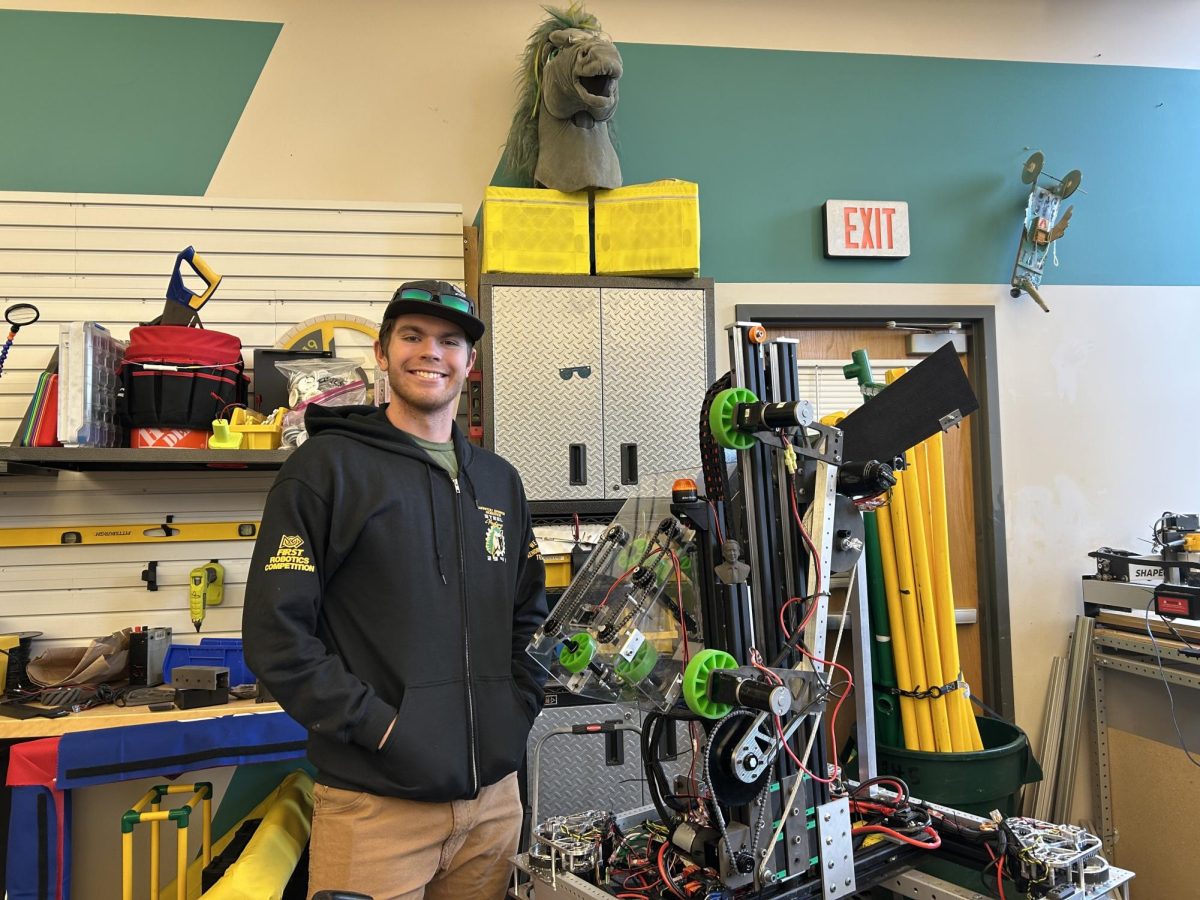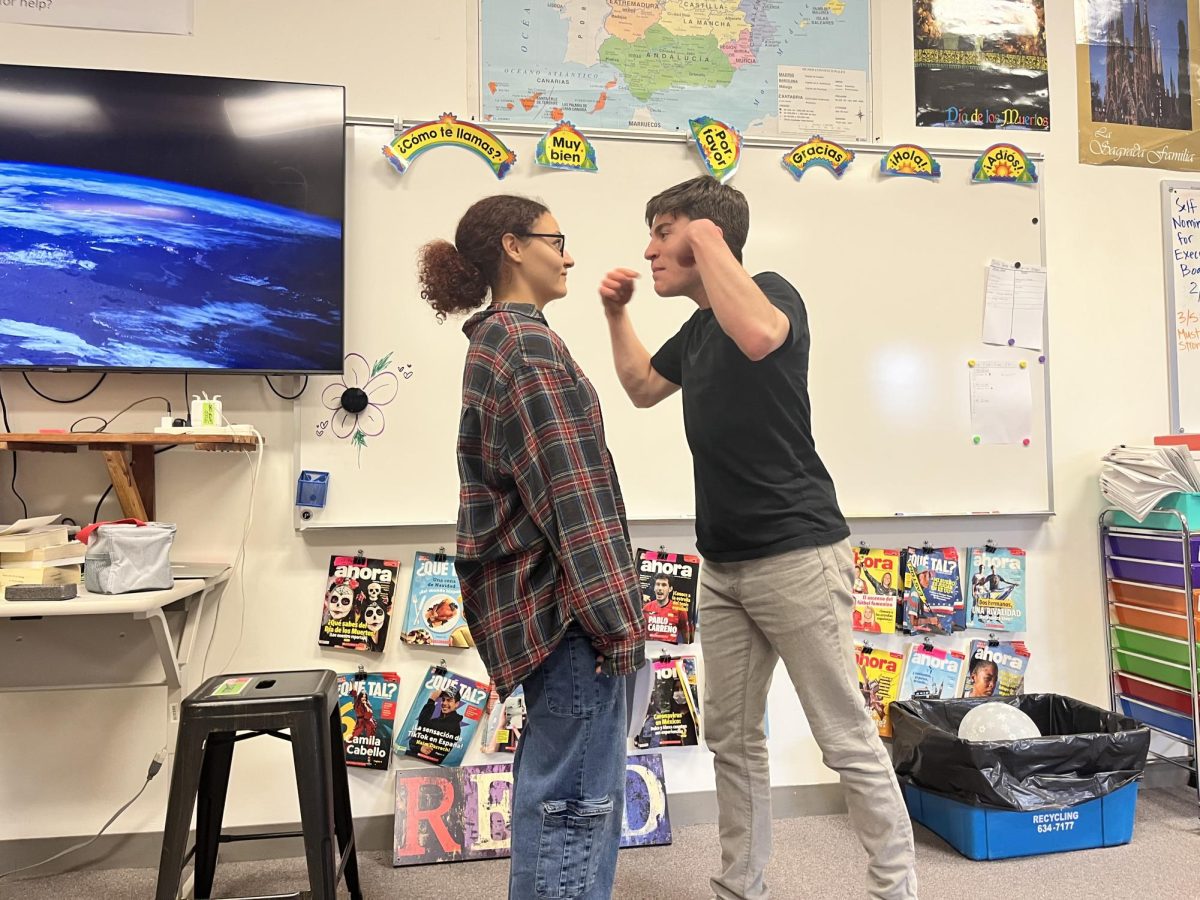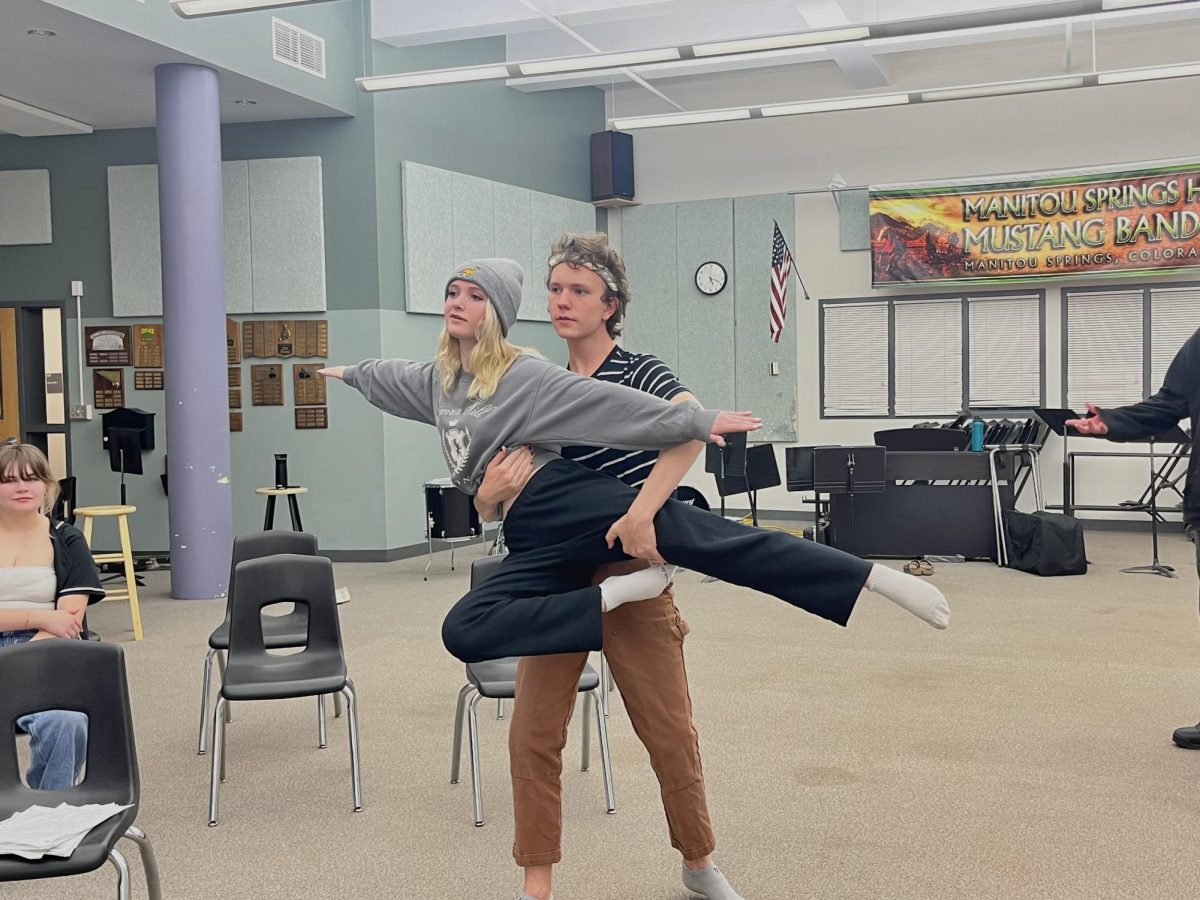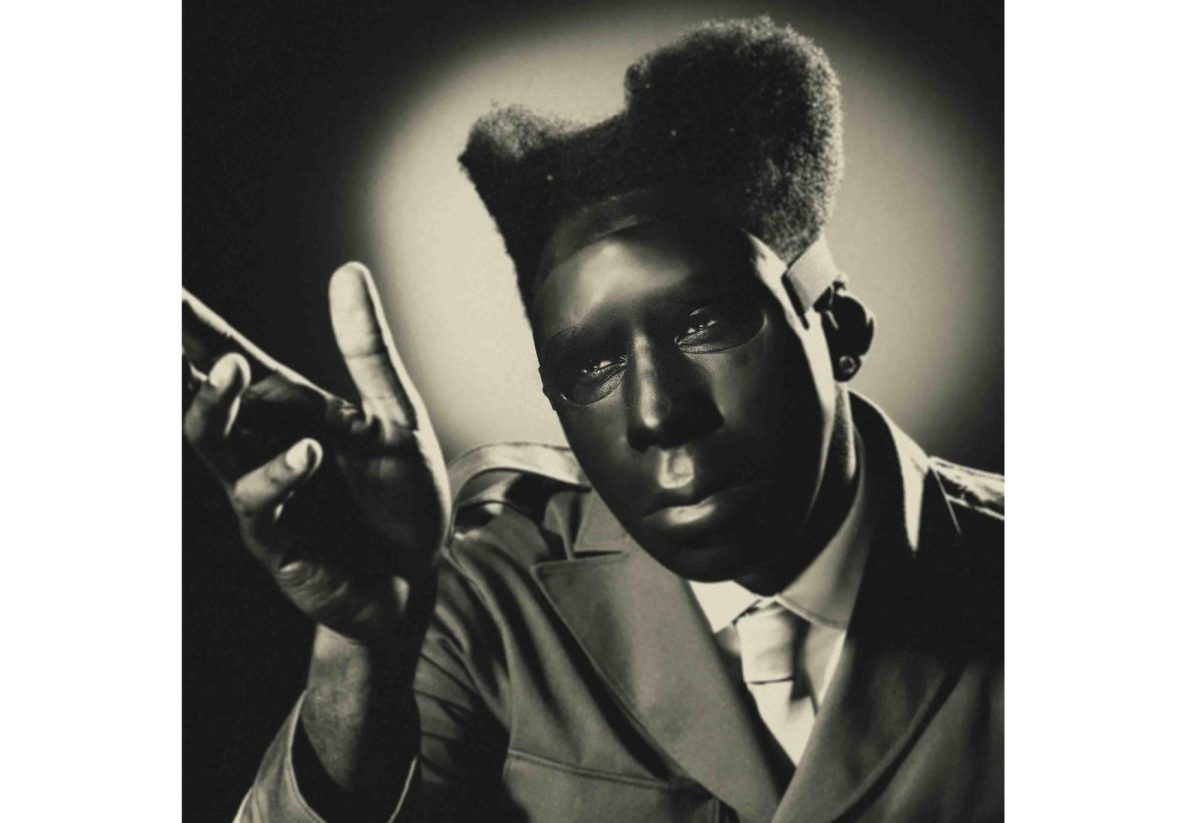Feature: Steven Blocher’s “The Hainan Island Incident”

What an opportunity! Steven Blocher met President George W. Bush in the Oval Office during his tour after returning from detainment.
October 18, 2016
Imagine a fine day of surveillance from the air, when all of a sudden, a Chinese jet collides, forcing an emergency landing on Chinese territory, where the officials there then detain and hold interrogations for almost two weeks. That’s Steven Blocher’s story of the Hainan Island Incident.
It all started as a normal day of doing surveillance work for the Navy near the South China Sea. Blocher and his crew were flying in an EP-3e, which is an EP-3 modified to have surveillance equipment in place of bombing capabilities. There were many computers and similar technology inside the plane’s large hull that the crew members would be operating during flight to do surveillance on the land and water below. It was April 1, 2001, and the aircraft was flying over international waters, decidedly not in Chinese territory. Blocher was changing position to the rear camera of the plane, when he suddenly spotted a Chinese J-8II fighter jet flying extremely close. For several minutes, the fighter jet, flown by Lt. Cdr. Wang Wei, remained extremely close and was performing all sorts of dangerous maneuvers. Jets stall easily under slow speeds, which is what Blocher’s EP-3E was flying at, so the Chinese jet was visibly unstable and quivering as it struggled to fly at the same speed as Blocher’s plane. The Chinese jet eventually collided with one of the EP-3E’s propellers, resulting in shrapnel that carried over to the other side of the plane and destroyed that side’s propeller as well. Blocher recalls another Chinese jet fighter nearby that then had his plane missile locked for a little while, thinking that the him and his crew had attacked the Chinese aircraft, until the jet finally retired from that idea. Blocher and his crew were now going down.
Fortunately, the pilot of the plane kept his calm and pulled a safe crash landing on the nearby island of Hainan. No one was visibly injured, but the plane was functionally useless as an aircraft at that point. The Americans then followed policy and began destroying as much of the equipment and technology inside the plane as possible. That meant computers and any data that the Chinese might confiscate, as well as American technology that the Chinese would try to reverse-engineer and use against the Americans in combat. For Blocher, he says, “One of the officers handed me these orange briefcases that were made out of steel with the big locks on them, for the top secret stuff, and he just told me to start bashing stuff.” When the crew was done, it took a long time for the Chinese military to arrive, and even longer for English speaking officials to arrive. Then, without hesitation, the American Navy crew was taken into detainment.
“They took us out on a shuttle to their base, separated us, and held us there for about two weeks to interrogate us.” Blocher recalls the Chinese treating them pretty well physically, with there being no physical torture, and them feeding the crew real food like chicken feet, fish heads, rice, and seaweed. “Apparently that food was, because they’re so poor over there, really good food for those people,” said Blocher. However, the Chinese tortured them mentally, making this period of the incident an especially cruel one for both Blocher and his crew. Everyone was separated and held in small rooms, and they were constantly being interrogated. Thus, with the combination of solitude and lack of sleep, the idea is that the crew members would be desperate for any kind of interaction and might give away some valuable information to the Chinese. At the same time, by holding the crew hostage for as long as possible, the Chinese were biding their time in trying to reverse engineer as much of the Americans’ EP-3E as possible.
All the while being in detainment, Blocher was doubting whether or not he’d make it out alive. The Chinese truly did succeed in their psychological torture method of isolation, because not only did they isolate the crew members from each other, they also isolated them from the outside world. No one had any idea of what was happening outside their confinement. The crew didn’t know if they would be saved or go to jail for the rest of their lives. “For the time we were there, they kept pushing the idea that we were off to jail, and as far as I was concerned, I was never going to see my family or where I lived ever again.” In fact, the crew didn’t learn they could leave until 30 minutes before they could actually leave. The US government had intervened in the matter with the “Letter of two sorries”, which resulted in the release of the American crew from Chinese detainment, as well as the eventual return of the crashed EP-3E. However, the Chinese forced the condition that the aircraft needed to be sliced up before it could be sent back to American soil, which was understandable because the US probably would’ve done something similar on its territory. Overall, the return of the crew members and plane was a slow and tedious process, but at least it happened at all.
Upon returning to base, the members of the crew learned that they had become war heroes for not giving any information to the Chinese. Furthermore, the crew was treated considerably well in all sorts of ways. The whole town held a celebration, the mayor gave proclamations to the crew, Dominoes gave them free pizza for a year, and they were given a month off for free. Blocher, however, was traumatized and wished to be left alone to process what had just happened to him, but he was still grateful for all the kind things everyone was doing for them. But there was still more, with the crew then being flown around the country on a tour. That’s when Blocher got to meet the Blue Angels, President George W. Bush, the president of Guam, and the director of the NSA, among other people. Interestingly enough, during his visit to the NSA, Blocher learned that the NSA had its eyes on the crew the whole time with satellite, from when they stepped out of the crashed plane, to when they were being interrogated. In the end, his return from detainment was positive and gave him the time to recover mentally from the incident.
It was an incredibly mentally traumatizing event for Blocher, with it also instilling a fear of flying in him, but it did at least give him a new perspective on the undesirable things in life. “It’s one of those things that I think back on when something bad’s going on in my life, and I think, ‘Well, at least I’m not there!’ because I remember being there, thinking that I’d give anything to not be in that situation.” The Hainan Island Incident may be just a tale to others, but it is very real to Steven Blocher, who will remember it for the rest of his life as the event that taught him a lesson in mortality and gratefulness

